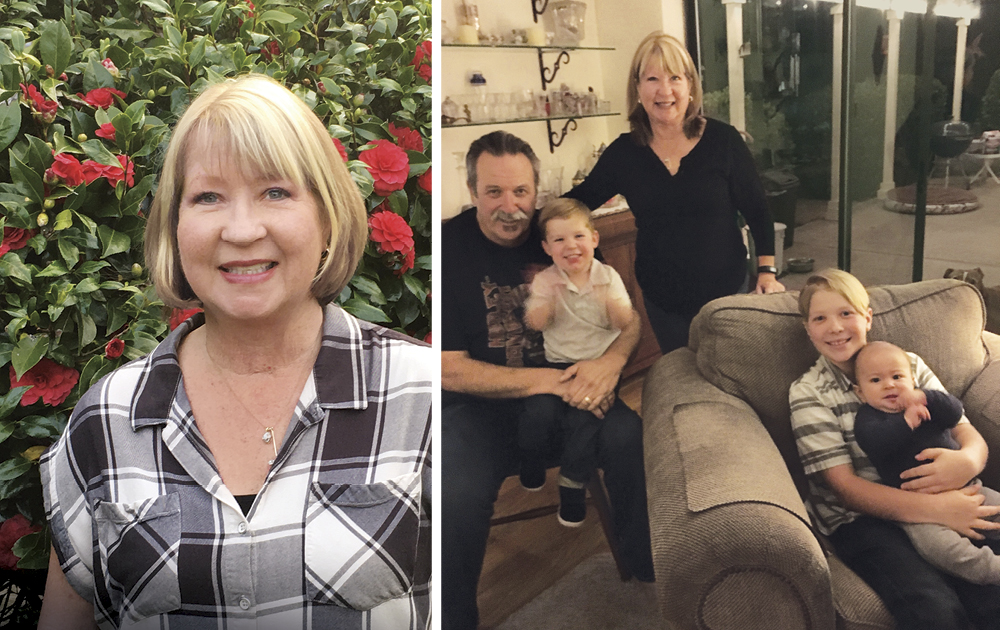
Hereditary cancer program
empowers patients and families
KNOWLEDGE IS POWER. That’s the overarching philosophy behind the Hereditary Cancer Program at the UC Davis Comprehensive Cancer Center. And the power conferred by knowledge — in this case knowledge of possible genetic markers for cancer — belongs in the hands of cancer patients and their families.
“We are here to provide the most up-to-date information so people can make informed decisions. Whatever they choose to do — or not — we support them,” explains Donna Walgenbach, a genetic counselor who has been with the program since its launch in 1998.
The primary mission of the genetic counselors and physicians who work in the program is to offer patients and their families comprehensive cancer genetics services, which include cancer-risk assessment, genetic testing with pre- and post-test counseling, and personalized recommendations for cancer screening and risk reduction.
Recommendations is the operative word here, because the program is designed not to be prescriptive, but informative. The counselors seek to explain the genetic background of specific cancers, up-to-date treatments and possible options, then let patients choose their course of action.
Many people who seek genetic counseling want to pass on any potentially vital health information about increased risk to other family members.
That was the case with Debra Massaro, 65, who has had three types of cancer and is currently receiving care at the cancer center. Massaro chose to undergo genetic testing in part because she wanted her two adult daughters to know if they were at increased risk of cancer. Massaro also wanted to know if she carried a mutation in the BRCA1 or BRCA2 gene because if she did, her doctors would treat her breast cancer more aggressively, possibly with a mastectomy.
“I was nervous to find out what kind of genes I had,” says Massaro, “but at least it gives you a plan for moving forward. that’s their goal.”
In addition to having two types of breast cancer, Massaro was treated several years ago for thyroid cancer.
Doctors may recommend genetic counseling if a patient has or has had cancer before age 50, more than one primary cancer, a diagnosis of a rare cancer, a known relative who carries a mutation for hereditary cancer, or a strong family history of cancer. During the initial meeting with a counselor, patients go through their family history of cancer, telling counselors of relatives who have had the disease, especially before age 50.
In Massaro’s case, her father had cancer of the appendix at about age 40. Her father’s mother was diagnosed with breast cancer at 72. Doctors wanted to know if Massaro carried a specific mutation that resulted in her thyroid cancer, and whether she carried the genetic breast cancer mutations. If she did, doctors would recommend mastectomy along with chemotherapy. If she did not carry the marker, they would recommend a lumpectomy and chemotherapy.
Massaro’s counselor Nicole Mans told her she had no BRCA1 or BRCA2 mutation.
“I was happy, and my daughters were very happy,” says Massaro.
Walgenbach says counselors work diligently to educate patients about the pros and cons of genetic testing, as well as its limitations. Some patients fear medical or genetic discrimination as a result of positive tests, and counselors inform them that such discrimination is against the law. Other patients simply do not want to know whether they carry a genetic marker for cancer.
Walgenbach stresses, however, that knowledge is power and can save lives. For instance, if a patient knows she carries a genetic mutation for colon cancer, she may have colonoscopies more frequently. If she knows she is at high risk for ovarian cancer and is past child-bearing years she may choose to have her ovaries and fallopian tubes removed.
Walgenbach and Mans say they discuss all of these options in depth with patients before and after genetic testing. Ultimately, however, the patient makes the decision.
“We are involved with supporting any decision of the individual,” says Walgenbach.
Mans says the program is expanding. “We are a growing program, and we are putting a lot of energy into looking for all kinds of ways to improve care for our patients,” she says.
Massaro believes the program already is phenomenal. “I feel at UC Davis they really care about their patients.”
